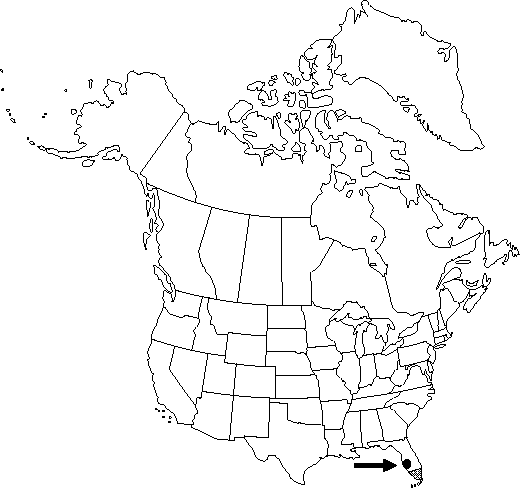Ficus citrifolia
Gard. Dict. ed. 8. 1768.
Shrubs or trees, evergreen, to 15 m. Roots adventitious, aerial, hanging. Bark brownish, smooth. Branchlets grayish, glabrous or sparingly pubescent. Leaves: stipules 0.5-2 cm, glabrous; petiole (0.7-) 1.5-6 cm. Leaf-blade ovate to elliptic or obovate, 3-14 × 1.5-8 cm, nearly leathery, base usually cordate or rounded to obtuse, margins entire, apex obtuse to acute or acuminate; surfaces abaxially and adaxially glabrous; basal veins 1 (-2) pairs; lateral-veins fewer than 10, if more than 10, not uniformly spaced. Syconia solitary or paired, pedunculate, yellow or red, spotted, globose to globose-ovoid, 8-18 mm diam., glabrous; peduncles to ca. 15 mm; subtending bracts 2, shortly connate, deltate or broadly rounded, 2-3 mm wide, glabrous or puberulent; ostiole subtended by 3 bracts, bracts ovate, ca. 1 × 2-3 mm, slightly umbonate.
Phenology: Flowering spring–summer.
Habitat: Tropical hammocks
Elevation: 0-10 m
Distribution

Fla., Mexico, West Indies, Central America, South America
Discussion
Ficus citrifolia is the large and graceful banyan tree that is planted for shade around verandas.
Selected References
None.